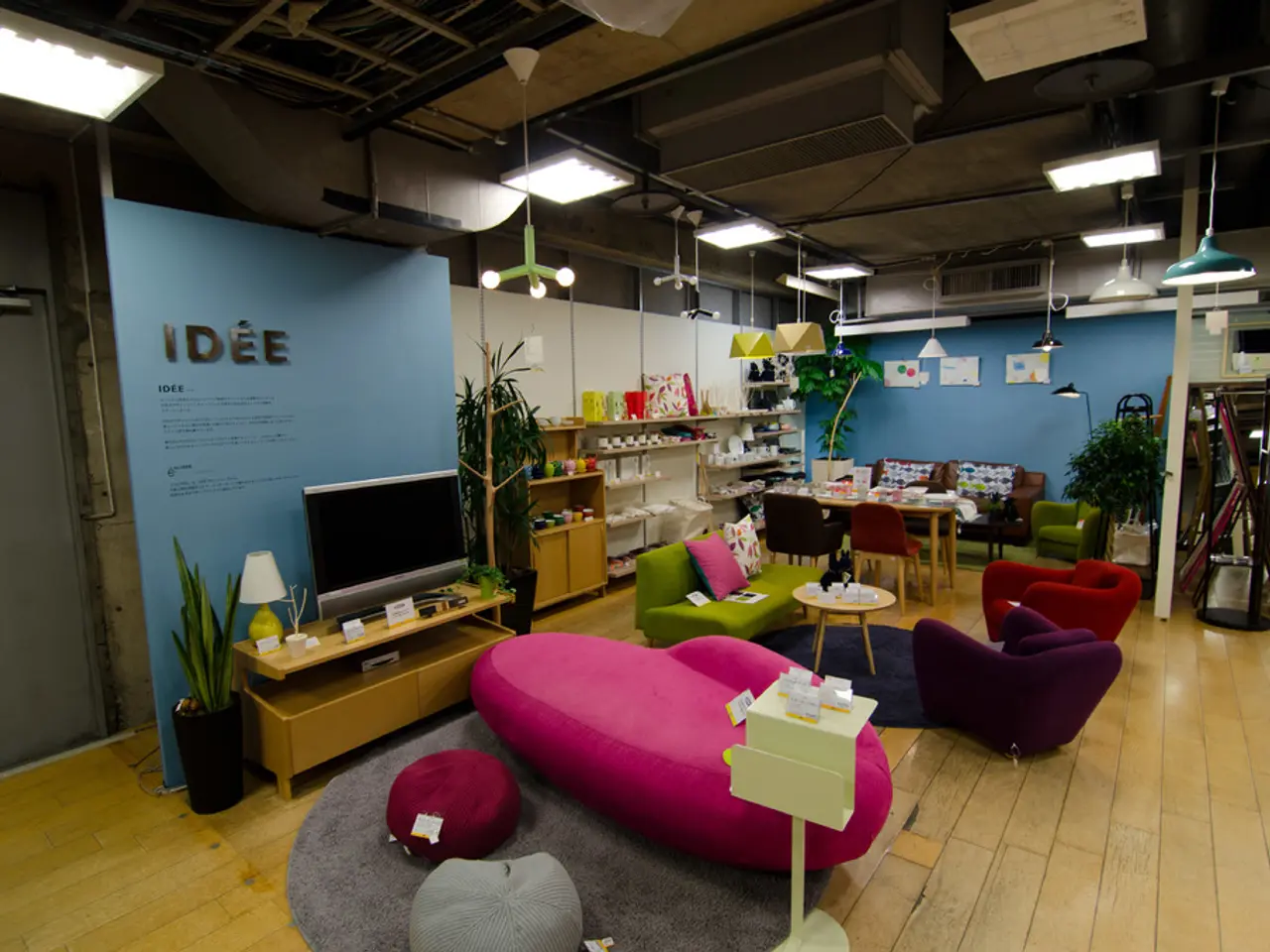The Increase in Home Automation Technologies
Smart Homes: The Future of Sustainable Living
Embrace the future with smart home technology, a revolutionary concept that integrates devices like smart speakers, advanced security systems, and home control via phones or voice commands. This technology is poised to reshape our lives, making our homes more intuitive and connected than ever before.
The rise of AI and machine learning is at the heart of this transformation. AI-powered systems learn user routines, offering predictive automation, advanced contextual understanding, and smarter voice assistants that manage complex tasks. This precise control of home environments reduces waste of energy and resources.
One of the most exciting aspects of smart home technology is its potential for sustainability. Smart homes increasingly feature energy-monitoring systems, smart thermostats, and automated HVAC systems that optimize heating, cooling, and electricity use based on weather patterns, occupancy, and habits. These innovations substantially lower energy consumption and utility bills, contributing to eco-friendly living.
Adoption of solar panels and battery storage solutions in smart homes is growing, allowing homeowners to generate and store clean energy. Integration with smart energy management maximizes the use of renewable energy, further driving sustainability.
Universal connectivity through standards like Matter simplifies smart device interoperability, leading to more cohesive ecosystems that reduce inefficiencies, device redundancies, and electronic waste due to incompatible gadgets.
AI-enabled security systems with facial recognition and biometric locks improve safety while minimizing false alarms, reducing unnecessary alerts that consume energy and bandwidth.
Sustainable material and design trends are also shaping the smart home revolution. Homes are being optimized for energy efficiency, with smarter material choices and designs that contribute to a more eco-friendly lifestyle.
Smart homes will actively contribute to sustainability by reducing energy consumption, enabling use of renewables, minimizing waste, and improving resource efficiency. This positions smart home technology as a meaningful driver in achieving environmental goals alongside improving quality of life.
The push toward smarter, sustainable homes is supported by government and industry efforts to ensure security, privacy, and user-friendliness in these evolving ecosystems.
Adopting smart home technology requires patience and adaptability due to potential device compatibility issues. However, the benefits far outweigh the challenges. With smart refrigerators suggesting recipes based on available ingredients, automated lighting systems changing according to moods during family movie nights, and smart irrigation systems optimizing water consumption, smart home technology enriches our lives and deepens connections with loved ones.
The speaker's fascination with gadgets and technology led to an interest in smart home technology. The first visit to a friend's smart home was a transformative experience, sparking a newfound appreciation for the potential of this technology. The speaker has since adopted mindful practices to minimize waste and conserve energy with the help of smart home technology.
Innovation in smart home tech can reshape our realities and enhance the bonds we share with those around us. The future of smart home technology holds virtually limitless possibilities for automating routines and enhancing safety. By 2025, prominent developments will include advanced AI integration, universal device communication standards like Matter, and enhanced energy efficiency and sustainability measures. The smart home revolution is here, and it's shaping a greener, more connected future.
[1] Smart Energy GB. (2020). Energy Efficiency and the Smart Home. Retrieved from https://www.smartenergygb.org/about-us/news/energy-efficiency-and-the-smart-home
[2] U.S. Department of Energy. (2019). Smart Homes: Energy Efficiency and the Internet of Things. Retrieved from https://www.energy.gov/eere/buildings/articles/smart-homes-energy-efficiency-and-internet-things
[3] GreenTech Media. (2018). The Smart Home's Potential for Energy Efficiency. Retrieved from https://www.greentechmedia.com/articles/read/the-smart-homes-potential-for-energy-efficiency
- The future of sustainable living is intertwined with smart home technology, integrating devices like advanced security systems, smart speakers, and home control systems.
- AI-powered systems in smart homes learn user routines, offering predictive automation and smarter voice assistants that manage complex tasks, ultimately reducing energy waste.
- Smart homes feature energy-monitoring systems, smart thermostats, and automated HVAC systems, optimizing heating, cooling, and electricity usage for maximum energy savings.
- The adoption of solar panels and battery storage solutions in smart homes allows homeowners to generate and store clean energy, contributing to eco-friendly living.
- Standards like Matter simplify smart device interoperability, reducing inefficiencies, device redundancies, and electronic waste due to incompatible gadgets.
- AI-enabled security systems with facial recognition and biometric locks improve safety while minimizing false alarms, reducing unnecessary energy consumption.
- Sustainable material and design trends are shaping smart homes, optimizing energy efficiency and contributing to an eco-friendly lifestyle.
- The future of smart home technology is exciting, with advancements like AI integration, universal device communication standards, and enhanced energy efficiency and sustainability measures promised by 2025.




